
Ingredient
Chicken liver
The Nutrient Powerhouse: Exploring the Versatility of Chicken Liver
Chicken liver is a small, dark organ meat that is known for its tender texture and distinct taste. It has a deep reddish-brown color and a smooth, velvety surface. The liver is soft and delicate, with a slightly grainy texture. When cooked, it becomes tender and moist, making it a popular choice in various cuisines around the world. Its flavor is robust and earthy, with a hint of sweetness. The richness of chicken liver adds depth and complexity to dishes, making it a favorite among chefs and home cooks alike.
Origins and history
Chicken liver has been consumed for centuries and is a staple in many traditional cuisines. It is believed to have originated in the Mediterranean region and has been a part of European, Middle Eastern, and Asian cuisines for centuries. In ancient times, liver was highly regarded for its nutritional value and was often reserved for the elite. Over time, it became more widely available and is now enjoyed in various forms and preparations across different cultures.
Nutritional information
Chicken liver is a nutritional powerhouse, packed with essential nutrients such as iron, vitamin A, vitamin B12, and folate. It is also a good source of protein and contains significant amounts of zinc and copper.
Allergens
Chicken liver may cause allergic reactions in individuals with poultry allergies.
How to select
When selecting chicken liver, look for fresh, plump livers that have a deep reddish-brown color and a smooth surface. Avoid livers that have a strong odor or appear discolored. Opt for organic or free-range chicken liver whenever possible to ensure the highest quality and flavor.
Storage recommendations
To maintain freshness, store chicken liver in the refrigerator at a temperature below 40°F (4°C). It is best to use it within 1-2 days of purchase. If you need to store it for a longer period, you can freeze it for up to 3 months. Ensure that it is properly wrapped or sealed to prevent freezer burn.
How to produce
Chicken liver can be produced by raising chickens and harvesting their livers. However, this process requires proper knowledge and expertise in poultry farming.
Preparation tips
Before cooking chicken liver, it is important to trim any excess fat or connective tissue. Rinse the liver under cold water and pat it dry with a paper towel. Chicken liver can be sautéed, grilled, or pan-fried to achieve a delicious caramelized exterior while maintaining a tender interior. It pairs well with onions, garlic, herbs, and spices. Avoid overcooking, as it can result in a tough and dry texture.
Substitutions
If chicken liver is not available, beef liver or duck liver can be used as substitutes. They have a similar texture and flavor profile.
Culinary uses
Chicken liver is commonly used in pâtés, terrines, and mousses, where its creamy texture and rich flavor shine. It is also a popular ingredient in stir-fries, stews, and pasta dishes. In some cuisines, it is grilled or skewered for a flavorful appetizer or incorporated into hearty soups and sauces.
Availability
Chicken liver is commonly available in most regions where poultry is consumed. It can be found in grocery stores, supermarkets, and butcher shops.
More ingredients from this category
Recipes using Chicken liver » Browse all

Chilean-style Pasztet with a Twist
Savory Chilean Pasztet: A Fusion of Flavors
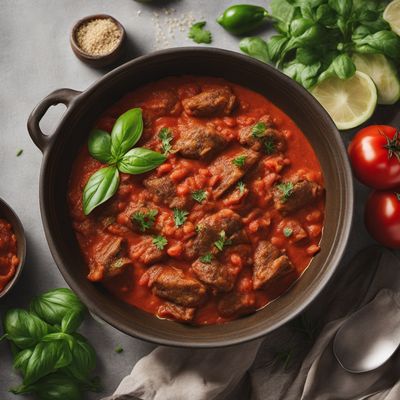
Paparele e Figadini with Tomato and Herb Sauce
Savory Pasta Delight: Paparele e Figadini in Tomato and Herb Sauce

Chicken Liver Pâté Canapés
Savory Delights: Russian-Inspired Chicken Liver Pâté Canapés
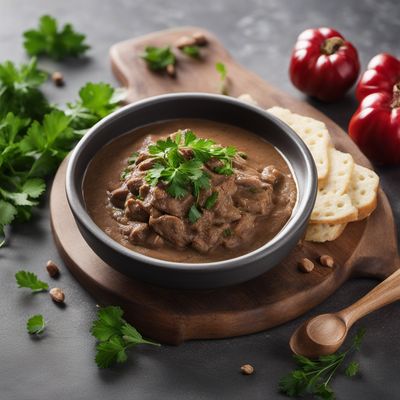
Silesian-style Chicken Liver Pâté
Hearty Silesian Delight: Chicken Liver Pâté with a Twist
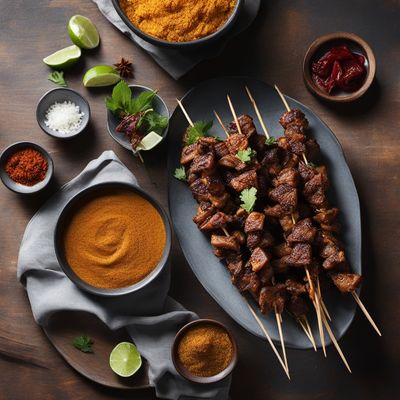
Grilled Chicken Liver Skewers with Sri Lankan Twist
Sri Lankan Spiced Chicken Liver Satay

Mangalorean-style Nièr beurre
Spiced Buttered Liver: A Mangalorean Delight
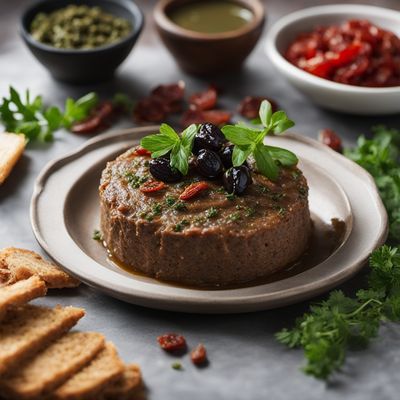
Apulian-style Pâté
Savor the Flavors of Apulia with this Delectable Pâté

Classic French Terrine with Herbs and Pistachios
Savory Delight: Herb-infused French Terrine with a Nutty Twist

Livermush Delight
Savory Southern Delight: Livermush with a Twist

Arab-style Spiced Chicken Liver
Savory Delights: Arab-inspired Spiced Chicken Liver
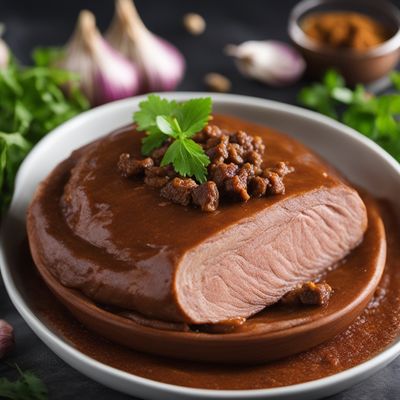
Bruneian-style Liver Pâté
Savory Delight: Bruneian Liver Pâté with a Local Twist

Hainanese-style Coratella with Artichokes
Savory Hainanese Delight: Coratella with Artichokes
